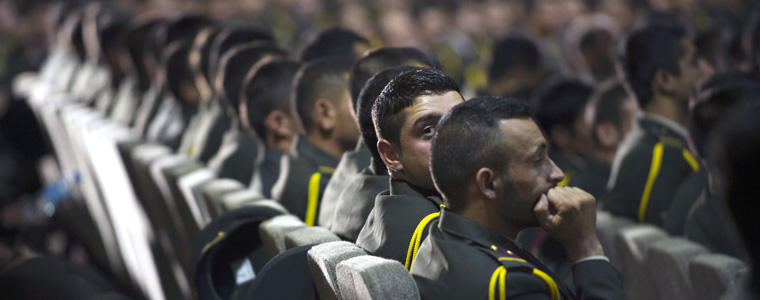The visit to Kabul of British Prime Minister David Cameron over the weekend provided an opportunity to again raise the issue of the stalled peace talks with the Taliban in Doha. Karzai did not provide clarity on when or whether he would rejoin the talks.

In the meantime, the Taliban issued a statement blaming the U.S. for the impasse and accusing it of being in a “state of confusion.” The Taliban were reacting to a statement by Secretary of State John Kerry that the just-opened Doha office might be closed if there was no progress on the talks.
Making any sort of progress will depend on President Karzai’s cooperation. He withdrew from the process after the Taliban used what was intended to be their political office to score propaganda points by making it look like an embassy. An infuriated Karzai withdrew from talks with the Taliban and, for good measure, separate talks with the U.S. about its long-term bases in Afghanistan.
In seeking to portray themselves as a legitimate government, the Taliban also reminded many Afghans what kind of government they used to be. The memories are not fond.
In a tough Wall Street Journal editorial on June 26, Davood Moradian, a former Afghan foreign ministry official and currently the head of the Afghan Institute for Strategic Studies, described how the U.S. support for the Doha formula was viewed by many Afghans: “America’s eagerness to flee Afghanistan has left its civil society feeling betrayed. Natural allies of the U.S.—including the Afghan independent media, women’s rights activists, the private sector, Afghan youth and the Taliban’s political opponents have been cut adrift. The U.S. gave the Taliban a prime propaganda victory in Doha and came away with nothing in exchange.”
The Taliban stunt in Doha and Karzai's reaction have done two things: they have visibly reminded Afghans of the nightmare of Taliban rule, and they have given people a reason to express their views.
Karzai now enjoys a degree of domestic support on this issue that he has not seen in some time, in particular from groups that Mooradian described who have generally been critical of Karzai. Even better for Karzai, this opinion may be directed as much against the U.S. as it is against the Taliban.
All of this suggests that Karzai has a lot to lose by returning to Doha. As I wrote earlier, he was always resistant to the initiative and had to be pressured to accept the opening of the office. To go back would mean not only doing something he is not inclined to do, but squandering significant domestic support in order to do it.
The U.S., meanwhile, is caught in a terrible dilemma. It has invested so much diplomatic capital in the Doha process that it is difficult to give it up just when the hardest part – getting the office opened – had been achieved. But cajoling Karzai back to the table will require even more capital for an uncertain result.
The Taliban statement should be read as a sign of impatience. The opening for negotiations will not last forever.
This should be a case study for future students of U.S. diplomacy, demonstrating as it does the best and the worst of statecraft: the long, patient, discreet diplomacy that led to the opening of the office after a year of effort, and the botched event.
Every student of diplomacy knows how the wrong seat arrangements can set back a negotiation, but there are probably few examples like this, where an unfortunate diplomatic mise-en-scène has sharply curtailed America’s strategic options. A flag, a banner, and a mostly mute Qatari diplomat have vastly complicated America's extrication from Afghanistan.
Scott Smith is deputy director of USIP’s Afghanistan program.



